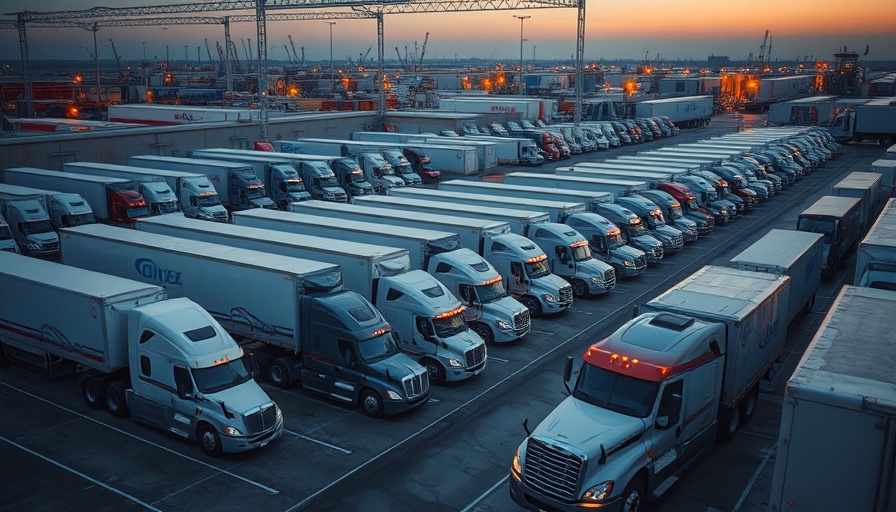
The Rising Costs of Cross-Border Trucking: Understanding the Tariff Impacts
As the deadline for the newly announced tariffs closes in, freight markets are already feeling the pressure. A significant uptick in cross-border trucking rates has been recorded, reflecting the uncertainties surrounding the implementation of these tariffs. With a sharp 25% tariff expected on goods coming from Canada and Mexico, the trucking industry is poised to undergo dramatic changes. Industry experts warn that the ripple effects are likely to reach consumers as well.
How Tariffs are Reshaping the Trucking Landscape
News reports highlight that the recent imposition of tariffs threatens to disrupt freight volumes significantly, affecting economic dynamics across North America. Chris Spear, President of the American Trucking Associations, noted that over 100,000 truckers would be impacted, exacerbating the issues facing the industry as operational costs are projected to rise significantly. According to the FreightWaves analysis, costs for new trucks may surge by as much as $35,000, which could lead to decreased numbers of trucks on the road and ultimately impact the delivery of goods to consumers.
Potential Consequences for Small and Medium Businesses
The repercussions of these tariffs extend far beyond the trucking companies themselves. Small to medium business owners that rely heavily on cross-border trade may find their costs escalating, which could lead to higher prices for consumers. If the tariffs result in a sharp downturn in trade volumes, companies may have to cut back on operations or lay off employees, creating a ripple effect on jobs and economic stability.
Rethinking Supply Chain Strategies
With the impending tariffs looming, businesses need to assess their supply chain strategies. There may be an urgent need to rethink logistical operations to mitigate potential disruptions. As outlined in analysis by S&P Global, firms may respond by expanding inventories to buffer against tariff-related price increases. This shift could signify a departure from just-in-time practices, affecting costs and availability of goods for consumers in the long run.
The Bigger Picture: Global Trade Dynamics
This round of tariffs isn't just an isolated event; it's a continuation of evolving global trade relations. The interconnected nature of supply chains means that significant changes in trade policy can have profound implications not only for trucking in North America but for global logistics and trade flows as well. As discussed by industry experts, these tariffs may lead to permanent adjustments in production and trade patterns that will significantly shape the industry's future.
It's clear that as we approach the effective date of the tariffs, businesses and consumers alike should stay informed and prepared for the transformative effects these policies may bring.
 Add Row
Add Row  Add
Add 




 Add Row
Add Row  Add
Add 

Write A Comment